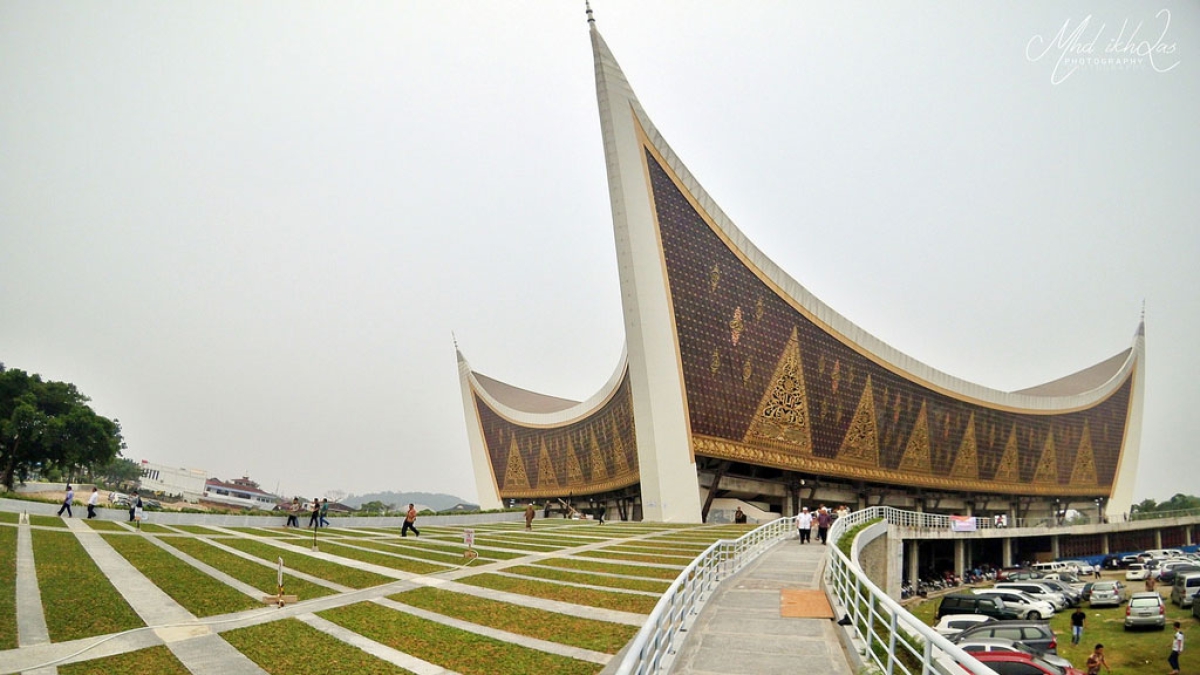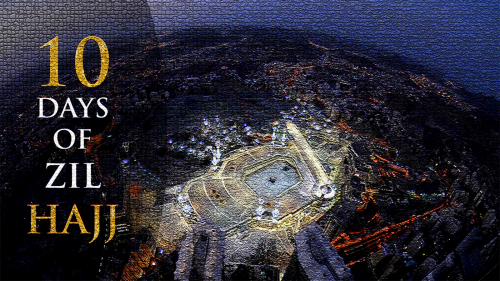The Benefits of Non-Muslims Visiting Mosques

There are many divergent jurisprudential opinions on whether non-Muslima should be allowed to enter mosques, or not.
Almost absolute prohibition is advocated by the Maliki madhhab, or school of law or fiqh (jurisprudence). Conditional permission is supported by the Shafi’i and Hanbali madhhabs. And finally, almost absolute permission is endorsed by the Hanafi madhhab.
At any rate, the most correct view is that non-Muslims should be allowed to enter and visit mosques, but under certain conditions.
Those conditions revolve around the following matters: that they are given permission beforehand; that their entering is justifiable; that they are acquainted with the dos and don’ts inside mosques, lest the mosque’s purity and sanctity should become dishonoured; and that their whole stay and their activities inside mosques are overseen by Muslims.
The exceptions, of course, are the holy cities of Makkah and Madinah with especially al-Masjid al-Haram in the former and the Prophet’s Mosque in the latter. By divine decrees, access to the two holy cities is restricted to Muslims only.
Indeed, there are many pros and cons in relation to non-Muslims and their entering mosques. However, if properly perceived and effectively made use of, non-Muslims’ entering and visiting mosques could be turned into an excellent avenue and means of da’wah islamiyyah (propagation of and calling people to Islam).
This is especially so today when a majority of Muslim countries and their cities are flocked with non-Muslim visitors and tourists (guests), so much so that there are mosques that are visited more by non-Muslims than Muslims.
The same, furthermore, is relevant above all today when misconceptions and misinterpretations about Islam and Muslims abound, and when Muslims find it very hard to clarify and dispel those errors and misunderstandings.
More often than not, a number of both historical and modern mosques are the target of those people’s touristic visits and attention. Visiting those mosques is a must on many non-Muslim visitors’ list of things to do.
When they come to a Muslim country, most of them do so keen to witness, pay attention to and try to understand only authentic things and issues. After all, they pay handsomely for what they are up to.
Muslims do not have to go to non-Muslims to tell them what Islam actually is, and what and who they actually are. Rather, non-Muslims keep thronging to Muslims’ midst. Hence, Muslims must make the most of the opportunity at hand and promote Islam’s and their cause. A healthy balance between demand and supply is to be created and sustained.
The mosque institutions, travel agencies and various governmental bodies in the Muslim world, should coordinate their sincere and well-devised plans and efforts, and should employ only highly qualified and trained personnel for the purpose of guiding those people — who are not only visitors, but also guests — and for explaining thoroughly a great deal to them about Islam, Muslims, Islamic history, culture and civilization, all of which the mosque institution as a community centre unmistakably exemplifies.
Accordingly, each and every “significant and attractive” mosque ought to have a few highly educated and trained guides — in addition to the tourist guides of a same calibre employed by both tourist and government agencies, who will be with the visitors (guests) most of the time from the moment they arrive till they depart — who should speak fluently a couple of leading world languages.
When a group of non-Muslim visitors come to a mosque, a guide will warmly, politely and intelligently welcome them, preferably – if possible – in their own language. He will then accurately and scientifically explain to them about the mosque and what it stands for, along with anything else associated with Islam and Muslims as may be relevant to a particular group of people, or which may arise during a visit and during the ensuing interactions and conversations between a guide and the mosque visitors.
Plenty of free pamphlets and other reading materials in various languages should be made available and distributed to the visitors as per their needs and interests.
The management of a mosque should strive to spur the curiosity and interest of the visitors, leaving then no query, or need, of theirs unfulfilled, or unattended to. The visitors should be admitted inside mosques up to designated points, having been duly informed of, and complied with, a code of ethics for doing so.
Just properly explaining a code of ethics for visiting mosques, which is always bound to trigger a host of other questions, will furnish visiting non-Muslims with lots of accurate information and truths about Islam and Muslims.
Moreover, explaining comprehensively the concept of the mosque as the House of God and a place of individual as well as collective worship, its history, architecture, decoration and various religious, educational, social and cultural roles and functions, will furnish the visitors with an invaluable treasure of facts and realities.
A great deal of the knowledge they are set to acquire in the course of their visits is likely to stay with them for the simple reason that they came to a Muslim country on their own accord. They did so in order to discover, hear and learn new things, paying considerably for the purpose.
It follows that being exposed to, and acquainted with, the real things and issues would mean to most visitors money and time well spent.
Besides doing a great service to Islam, a great service to the country and the government will thus be rendered as well, as many job opportunities will open up, resulting in the tourism industry to become yet more meaningful, interesting, thrilling and, of course, more profitable for all parties involved.
The tourism industry thus should not be spoken of only as a great revenue source, but also as a great source and means of enhancing the reputation of Islam and Muslims in the eyes of non-Muslims. The tourism industry is to be turned into a great source, strategy and means of da’wah islamiyyah, with the mosque institution at its heart, which, if properly optimized, has the potential to yield arguably more benefits than a great many conventional, but more challenging and more costly, da’wah islamiyyah sources, strategies and means.
Those destinations as are most targeted by international tourist arrivals, such as Egypt, Turkey, Morocco, Tunis, Malaysia, etc., should start thinking of offering advanced and Islamised university programs specializing in tourism management and guidance. The programs should successfully integrate the sectors of Islamic studies, foreign languages, social sciences, humanities and art. Due to their intrinsic holistic, interdisciplinary and integrative character, the programs will be far more challenging and demanding than most of their university counterparts.
Furthermore, Allah says: “And if one of the idolaters seeks protection from you, grant him protection till he hears the word of Allah, then make him attain his place of safety; this is because they are a people who do not know” (al-Tawbah, 6).
This verse stipulates that when non-Muslims in general for legitimate purposes visit Muslims and Muslim lands, both in war and peace, they are to be granted absolute protection and be treated with respect.
At the same time, they are to be exposed to the truth and light of Islam as much as possible, and to be provided with enough opportunities to hear, understand and witness the powerful impact of the Word (revelation or the Qur’an) of Allah on the lives of Muslims.
Without doubt, there is no better place for fulfilling this task than the realm of the mosque phenomenon, and there are no better people to do it than those who patronize mosques in their hearts, minds and deeds.
Additionally, as far as those non-Muslims who peacefully on a permanent basis co-exist with Muslims are concerned, they, too, are to enjoy on a permanent basis absolute protection and respect from Muslims, and are likewise to be exposed to the truth and light of Islam on a permanent basis.
This is to be achieved most effectively through the ways Muslims live their virtuous lives, and their institutions operate for their own as well as universal good, rather than through mere words, or slogans, or symbols, which are not backed by concrete initiatives, actions and results.
Here again the role of the mosque institution as a community centre and as a symbol and microcosm of Islam and the Muslim existence, will be paramount.
For Muslims’ non-Muslim neighbours and fellow citizens, special sessions as frequently as on a fortnightly basis should be organized in mosques for the purposes of integration, mutual understanding and promotion of the Islamic noble cause and values. Information about the initiative should be disseminated to schools, colleges, NGOs, governmental institutions and bodies, media and the public.
The bigger the percentage of non-Muslims in a country, the more frequent, intensive, meaningful and focused programs are supposed to be. Almanacs featuring diverse events and activities are to be produced by mosques, either individually or collectively. Proper invitations are to be always sent to particular target groups for particular events and programs.
Indeed, it’s about time Muslims get on the front foot with regard to defending the interests of Islam, as well as their own interests, and the promotion of the same to the world. By no means should Muslims feel sorry and apologetic for things falsely imputed to them. Nor should they be hesitant or timid in confronting injustice, tyranny, intolerance and hate, both locally and globally. Nor should they allow themselves to be blackmailed by anybody and anywhere into inequitable submission and admission of fabricated, or greatly exaggerated, wrongdoings.
It goes without saying that in this particular regard, much is expected from mosques and Muslim communities in Muslim diaspora in the West.
Mosque and those who patronize them are to be Islam’s true ambassadors. Considering the huge number of mosques and Muslims in the West – which grows by the day -- their proper functioning and interactions with the rest of both institutions and population can decisively help in overcoming the stereotyping and prejudice towards Muslims.
Legitimate mosques and faithful Muslims, playing their respective inclusive social roles, signify an antidote to islamophobia.
There will always be more mosques and more upright and honest Muslims in the world than islamophobes, bigots, extremists and fanatics on both sides. The latter, therefore, stands no chance against the former in the long term.
It is only needed that mosques and their roles and functions become the epitomes of Islam’s world-shattering mission and purpose, and that faithful Muslims become not only the embodiments of the Islamic message, but also its authentic source to others at work, in neighborhoods, in colleges and universities, in entertainment, sports and shopping centres, on the street, inside the means of public transport, etc.
Not exposing non-Muslims wisely and effectively to the light and guidance of Islam would be a serious spiritual failing in Muslims. It would also signify a serious act of injustice perpetrated against non-Muslims. Both will thus be bound to live handicapped lives.
Topics: Dawah (Outreach), Interfaith, Islamophobia, Mosque, Unbelievers
Views: 5325
Related Suggestions

















